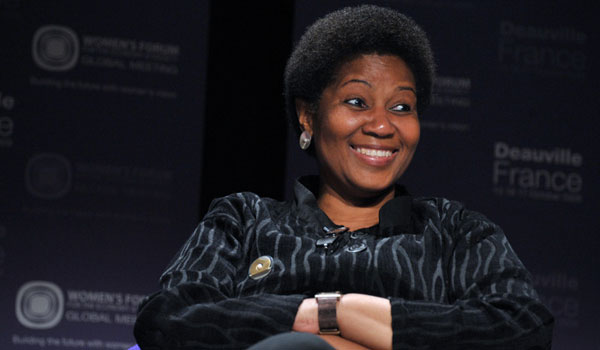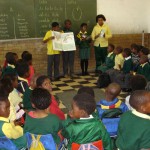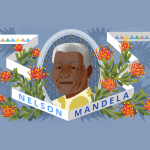If you are a follower of South African politics, Phumzile Mlambo-Ngcuka needs no introduction. Known as ‘Mamlambo’ to those close to her, Mlambo-Ngcuka is synonymous with politics and leadership in South Africa and for years has been one of the famous faces of political leadership in the country.
She might have started out as an ordinary Member of Parliament, but the 57-year-old has made a name for herself in South African society. As she reports for duty at the United Nations headquarters in New York today, those who have worked with Mlambo-Ngcuka here say they will miss her energy and contribution to the betterment of underprivileged communities and equal society.
She will be remembered for starting several community uplifting projects, including the Guguletu Community Development Corporation, near Cape Town. However the past few months have been filled with change for Mlambo-Ngcuka. As Undersecretary to UN Secretary General Ban Ki Moon, she takes her fight for equality global.
But despite all her achievements, the media-shy Mlambo-Ngcuka reveals in an interview with SAnews that as a teacher in Durban in the 1980s, it never occurred in her mind that she would one day be among a list of high ranking personalities in South Africa. In fact, if it wasn’t for the injustice of the apartheid regime, which forced her to join politics, Mlambo-Ngcuka would still probably be a teacher.
“I suppose if I didn’t grow up and live in South Africa, where there were pressing issues and one needed to take a stand, I would just probably be a teacher and nothing else,” she says.
A successful career
She doesn’t regret the way her life has turned out though. Overall, Mlambo-Ngcuka has been incredibly successful in her career and is very content with her life. She lectured at the Impumalanga Teachers Training College, from 1980 to 1981; and taught at Ohlange High School in KwaZulu-Natal from 1981 to 1983. She worked as a Director of World University Services – a funding agency – from 1990 until 1992 and she was a founder and Managing Director of Phumelela Services, a Management Consulting Company in 1993.
At just 38, she was elected to the first democratic Parliament of South Africa in 1994. She later served as deputy trade and industry minister from 1996 to 1999, and as minerals and energy minister from 1999 to 2005, where she made a mark. She became South Africa’s first female deputy president in 2005.
A family woman
Mlambo-Ngcuka is married to Bulelani Ngcuka, the country’s first National Director of Public Prosecutions. The couple has three children and Mlambo-Nguka says she may be the busiest mother and wife but her family always comes first in whatever she does. She beams as she speaks about her children and her mother’s influence in her life. She admits though that being a successful business woman, a politician and having uninterrupted time with family has not always been easy.
“It’s difficult, it really is. I don’t even have advice to give to anybody…I can only say to anyone who wants to pursue a career in public office, do put your children first if you have children, it’s very important,” she says.
“My mother is my rock. She definitely has been a huge influence in my life and has been a huge help in the family,” she says of her 84-year-old mother Khosi Mlambo.
As she starts a new life in New York, back at her offices at Umlambo Foundation in Johannesburg, she commands respect among staff. Those who work with her fondly call her ‘Sisi’ or ‘Mam’. It’s probably a reflection of her leadership style and attachment to the principles of Ubuntu.
She started the foundation in 2008 after leaving the Presidency to contribute to the national effort of improving the quality of education in the most disadvantaged rural and suburban schools.
On its website, the organisation cites its objective as that of building human resource capacity by providing quality education, thereby ensuring that schools are turned into centres of excellence.
The Foundation is geared to have a positive impact on the schools it has adopted. This in turn results in sustainable improvement and a high quality of teaching and learning, coupled with excellent learner results.
But as she joins the global body’s leadership team, Mlambo-Ngcuka is aware that her responsibilities now go beyond solving the challenges of South Africa. She has four years to protect and promote the rights of four billion women around the world. And it’s a task she’s ready for.
Ready for UN task
“My task there will be leading a team that is already established to address gender-based violence, to address economic empowerment of women, leadership and participation of women and to push for the implementation of MDGs (Millennium Development Goals) both current and beyond 2015 in such a way that they have significant impact on women”.
The Millennium Development Goals are a list of goals signed by UN member states pledging to halve poverty and underdevelopment by 2015. Recent research has found that, at the current pace, Africa may not meet the deadline for these objectives.
Mlambo-Ngcuka says pushing for the implementation of the MDGs and the need to create a better life for as many people as possible will be what will drive her in her new role.
“If you can make a difference in once person’s life, that’s important. We all have to make a difference and we all have to put in a little bit in making our country and the world better.
“We have arrived and we are living in a democratic country and world and there’s nothing more to do for us other than to make this democracy work.
“My belief is that if you really can impact on people who have few opportunities, I will not over promise and under deliver but I will discharge my responsibilities to the best of my abilities.”
As South Africa commemorates the contribution of women in the struggle for liberation, Mlambo-Ngcuka has only one message for the country’s women.
“The sky is the limit, I know it’s hard, but they must not give up, it is possible to make it in South Africa, it’s a country with full of possibilities”.
And Mlambo–Ngcuka is living proof that anything is possible. – SAnews.gov.za








